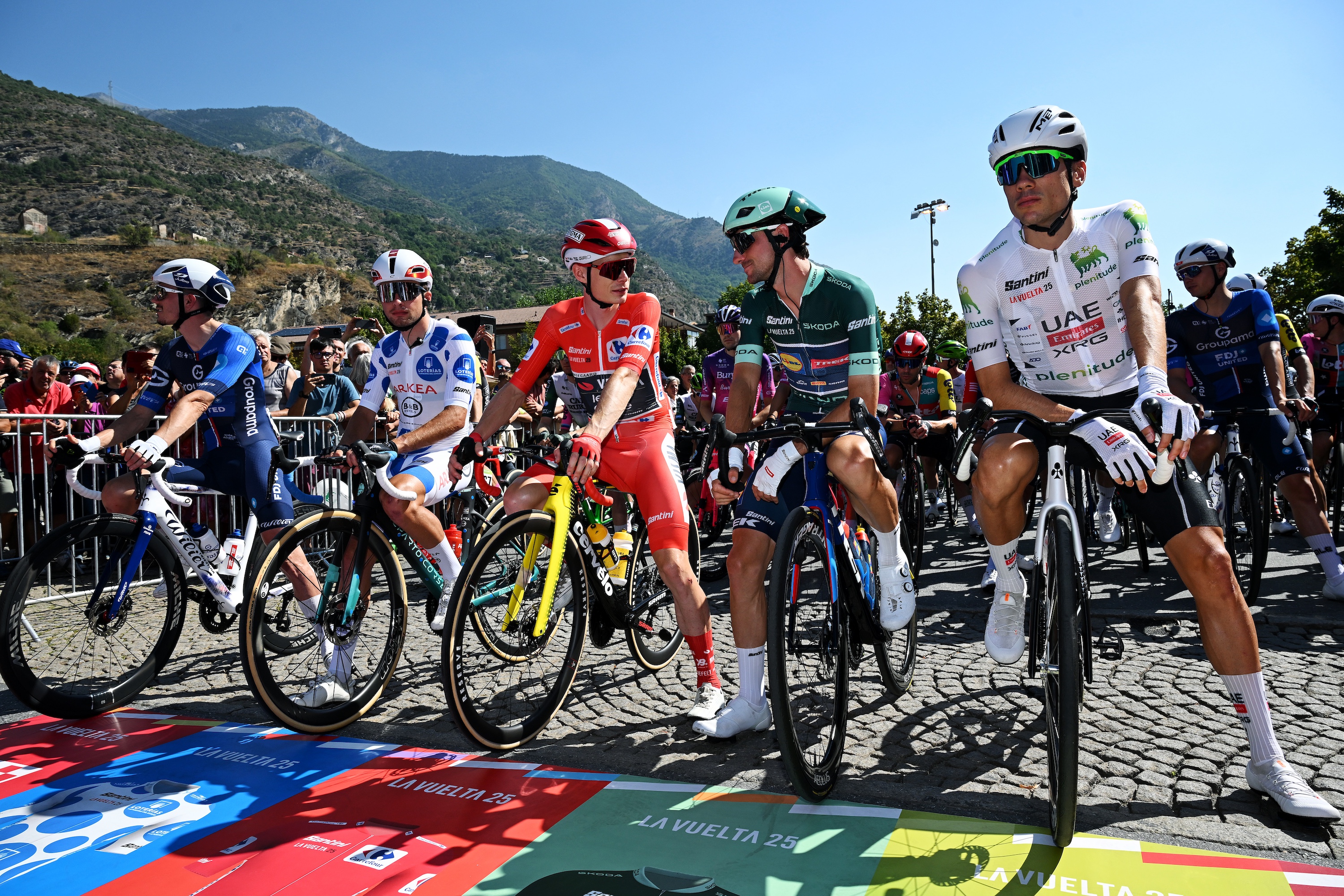How much prize money does a Vuelta a España winner receive compared to those in the Tour de France and Giro d'Italia?
And how do the women's Grand Tours stack up?


The latest race content, interviews, features, reviews and expert buying guides, direct to your inbox!
You are now subscribed
Your newsletter sign-up was successful
Bunch sprints, summit finishes and a GC battle that is already starting to sizzle, the Vuelta a España has so far treated fans to thrills and spills aplenty.
Much as they love riding bikes, every rider present has earned their spot the hard way, living an austere lifestyle and facing down the risks involved in the sport. However, prestigious races like the Vuelta are where they can earn the big bucks in return.
But exactly how big are those big bucks, you may wonder – and how do they stack up against its sibling Grand Tours, the Tour de France and the Giro d'Italia?
It doesn't take much research on the subject to learn that there is something of a hierarchy among the three-week races on the men's calendar, which tallies with the history each has behind it.
Probably unsurprisingly – given it's likely the only one of the three that every member of your family, including the non-cyclists, has heard of – the Tour de France is the daddy of them all. Established in 1903, it came along first and is a veritable behemoth – the biggest annual sporting event in the world, is the well-used quote.
The Giro d'Italia was inaugurated just five years later in 1909, followed by the Vuelta in 1935.
The Italian and Spanish races have always existed in the shadow of the Tour, but both have their admirers. The Giro has certainly benefitted from the natural tendency of cycling fans – as with those in motorsport – to be naturally drawn to the style and pedigree of all things Italian and has picked up the helpful moniker 'La bella corsa'.
The latest race content, interviews, features, reviews and expert buying guides, direct to your inbox!
The Vuelta a España, on the other hand, has felt the burden of its 'new kid on the block' status, and over the years has been shunted from pillar to post (or, at least, from April to August) in order to try to attract a stronger field.
The Spanish tour has certainly gained plenty of fans thanks to its being a longtime proponent of early stages with the potential to shake-up the general classification, and in the modern era often boasts a strong field and has been won by some of the biggest names in the sport.
However, a glance across the different prize money tables for the three races reveals that it still has some way to go before it catches up with its siblings on the financial front.
Taking the total prize purse for each race, the Tour packed a generous €2.3 million (£1.95m / $2.67m) total prize pot this year, with €500,000 (£423K / $580K) for overall winner Tadej Pogačar.
In comparison Giro d'Italia winner Simon Yates walked away with €265,668 (£229K / $308K) for his overall victory – part of a €1.6 million total prize pot.
Whoever wins the Vuelta this year will be awarded the comparatively modest €150,000 (£129K / $174K) as part of a total prize fund of €1,115,775 (£962K / $1.29m).
Of course, there are also prizes placing high on the GC, and for winning classifications and stages. Perhaps surprisingly, the prize for the latter is the same across all three races, with those winning stages in the Tour, Giro and Vuelta all scooping €11,000 (£9,480 / $12,750) for their efforts – almost. Curiously, the Giro d'Italia offers slightly more with winners netting €10 euros extra.
While the Vuelta's total prize fund and the winner's award looks modest compared to that of the Tour de France and even the Giro, it dwarves its women's equivalent, the Vuelta Femenina – and even the Tour de France Femmes avec Zwift.
Winners at the Vuelta Femenina benefit from a €131,000 (£113K / $151K) total prize pot, while that of the Tour de France Femmes and the Giro d'Italia Women is €250,000 (£215K, $290K).
The overall winners in the latter two races, Pauline Ferrand-Prévot and Elisa Longo Borghini, both net €50,000 (£43K / $58K), while Vuelta Femenina winner Demi Vollering took home €35,000 (£30K / $40K).
It's worth pointing out that while it may be the race winner who is awarded the prize, they don't get to keep it as their own. At least, not all of it. Cycling is a team sport after all. After a race like the Tour de France or the Vuelta a España, a team will sit down and count its winnings, distributing them across all those who played a part.
After all, the mountain domestiques or the leadout trains who serve those winning riders might reasonably have something to say about it if their own efforts were not recognised.
After cutting his teeth on local and national newspapers, James began at Cycling Weekly as a sub-editor in 2000 when the current office was literally all fields.
Eventually becoming chief sub-editor, in 2016 he switched to the job of full-time writer, and covers news, racing and features.
He has worked at a variety of races, from the Classics to the Giro d'Italia – and this year will be his seventh Tour de France.
A lifelong cyclist and cycling fan, James's racing days (and most of his fitness) are now behind him. But he still rides regularly, both on the road and on the gravelly stuff.
You must confirm your public display name before commenting
Please logout and then login again, you will then be prompted to enter your display name.
